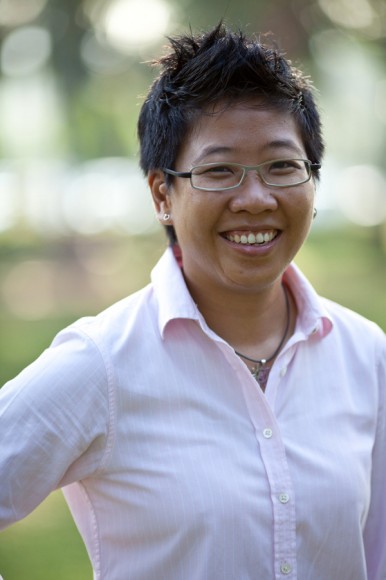
FILM and television producer Lina Tan graduated with a Mass Communications degree in 1991. She has worked in production houses in Malaysia and Singapore, and has produced for, among others, the Disney Channel and AXN.
In 1999, she founded Red Communications, under which she has produced and directed many local TV commercials and programmes. Among them are 3R (Respect, Relax, Respond), a series focusing on women’s issues, which won for Best Infotainment Programme at the Asian TV Awards 2002. Profil Seni, a documentary on the performing arts in Malaysia, won Best TV Documentary at the Anugerah Seri Angkasa in 2005, and Best Documentary Film at the 19th Malaysian Film Festival in 2006.
In 2004, Tan formed a subsidiary company called Red Films, under which she produced the hit movie Gol & Gincu, which was written by and starred Rafidah Abdullah. Tan’s other credits as film producer include the movies Kami and Pisau Cukur.
She talks to The Nut Graph in the Red Communications office in Petaling Jaya on 13 May 2010.
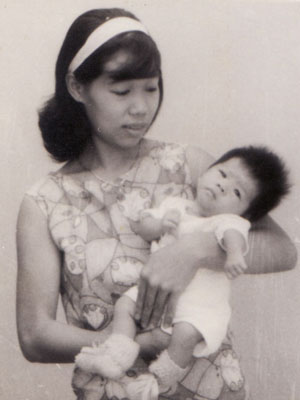
TNG: Where were you born and where did you grow up?
Lina: I was born in 1967 in Malacca town, and I grew up entirely in Malacca until I left to study after Form Six.
Can you trace your ancestry?
Both my parents are Chinese Peranakan born in Malaysia. Their parents were also born here. Beyond that, we’re not entirely sure. My dad thinks his grandfather might have come to Malaya from China, but he doesn’t know about his grandmother’s lineage. On my mum’s side, I have a photo of my maternal great-grandfather wearing a sarong, but it doesn’t look like a “local” sarong. So we’re not sure where it came from.
Looking at what we do know, I would say I’m at the very least a fourth-generation Chinese [Malaysian].
My paternal grandfather was a station master. Many Peranakan in those days would either be government servants or in business. My dad and his siblings were teachers who worked for the government. My mum used to sell Tupperware and Pyrex – she was very much the salesperson. She was one of the early ones who threw Pyrex “parties”!
In those days, it wasn’t highly regarded for a woman to do business house-to-house, so my mum’s work was not supported by my dad or his relatives. My dad, on the other hand, had a stable job with a reputable school. [He was] a senior assistant at Gajah Berang School in Malacca. So there was a bit of difference in character between my parents, and I think I inherited some of my mum’s entrepreneurial spirit. She would take the initiative to go out, look for customers, without the benefit of mobile phones and the internet!
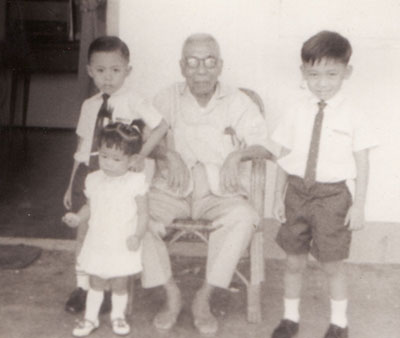
What are your strongest memories of the place where you grew up?
My fondest memories were during my primary and secondary school days at Infant Jesus Convent. I remember having to write Jawi in Standard Five. I was hopeless at it, so my best friend, a Malay [Malaysian] girl, would do my homework for me. It didn’t work, because the teachers immediately knew that it wasn’t my writing! (Laughs) But it was fun – we would cycle home after school, and her mother was friends with my parents, so we would hang out at each other’s houses.
After Standard Six, all the well-achieving Malay [Malaysian] girls were sent to asrama penuh, while the non-Malay [Malaysians] went on to Form One and so forth. It was a period of change, and it was sad, because I lost many of my Malay [Malaysian] friends.
I remember one day when the daughter of [then] Malacca chief minister and the daughter of [a then] Malacca judge joined our class, and we became very good friends. We would go over to the judge’s daughter’s house, a huge government house with sprawling grounds, to play football. We celebrated every Aidilfitiri there. There was never any thought of racial differences … we were all just friends.
I have very good memories of University Sains Malaysia (USM) in Penang. I had Malay [Malaysian] roommates all the four years I was there due to USM’s policy of mixed races in one room. I remember my roommate needing to pray, and I was worried that I was not meant to be in the room during that time. She said, “No lah, its fine, don’t worry.” I really learnt then about cultural differences and similarities.
It was at USM that I saw racial segregation for the first time. There were Malay, Chinese, and Indian [Malaysians], and then there were the rest of us who didn’t want to be segregated into racial groups. It was a bit of a culture shock.
I also felt the racial disparity when it came to my Form Six results. I got one A, one B, one C, one D and one E, and just made the cut-off point to enter Mass Communications at USM. As we were comparing notes, I found out that my Malay [Malaysian] roommate had scored one B, one D, one E, and two Fs. And I thought, “You only passed three papers and failed two, and you got into the same course that I’m doing?”
Then there were the really smart Malay [Malaysian] girls and guys who got in on their own merit, and were also struggling with the notion of “getting things easy just because of their race.”
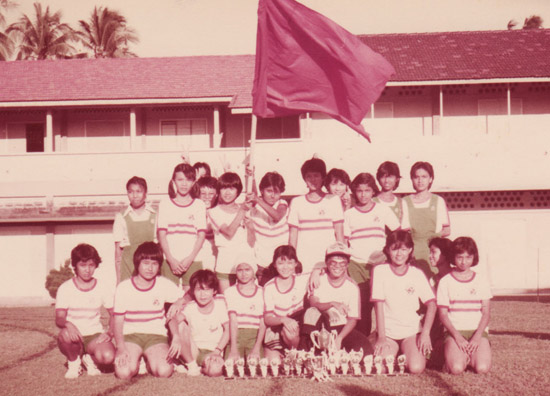
What aspects of your identity do you struggle with the most as a Malaysian?
I find it strange that when I’m overseas I feel very Malaysian; but when I come back to my own country, I struggle with being Malaysian. I don’t get bumiputera privileges, but at the same time I don’t think I’m so Chinese that I need to retain that identity by going to a Chinese school or by learning the language.
I struggle when I hear people talk about defending the Chinese legacy, and I wonder what they’re really referring to: the right to study Mandarin? You can still do that as language skills are important, and the more languages you learn, the better. [Or] the right to education? Yes, education is very important, but we need good, solid education across the board.
I never grew up in a very “Chinese” environment. I don’t speak Chinese or any dialects, because my family always spoke English or Malay.
I also struggle with classifications. Filling in the forms … okay, fine, I’m Chinese [Malaysian]. What religion? I don’t know, I have certain beliefs, but it’s so personal to me that to put it on paper for the sake of putting something down seems pointless. And really, what does my religion have to do with a bank application? Just so I can be a statistic?
Describe the kind of Malaysia you would like for yourself and future generations.
I think that “1Malaysia” is a great tagline, but the reality is far from this idealistic concept, and the future does not seem very bright for racial unity. If we continue to have political parties based on race, religion and gender, we will never, ever abolish the mentality, the whole system, that we have now.
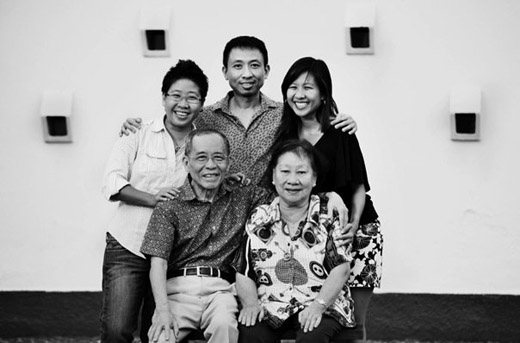
Everything is so divisive. Because I am Chinese [Malaysian] and female, I can never be a part of that particular ruling party that decides who gets to be the prime minister, and I could never even be considered. Because race-based politics is about fighting for your race. It’s not about fighting for human rights. It’s about, “I’ll support you because you are my race.” Or, “I don’t care about the other races, let their own kind take care of them.” It’s ridiculous.
I love this country, but the biggest thing that drives me nuts is the segregation, and I’m faced with it every day in the media industry. We’re always dividing the message – are we targeting Malay [Malaysians]? Are we’re targeting Chinese [Malaysians]? What’s the grassroots mindset? Can they accept this? Why are we not targeting a Malaysian society to make them understand universal human values that promote understanding and respect, regardless of our differences? ![]()
Read other Found in Malaysia interviews
The Nut Graph needs your support
[related-posts]


Rhan says
“I struggle when I hear people talk about defending the Chinese legacy, and I wonder what they’re really referring to: the right to study Mandarin?”
Hmmm, nope, we refer it as the right to diversity; it shall include religion, language, custom and culture, synonymous as what you did mention: human rights. Don’t take this for granted and please keep on asking yourselves why you can attend a missionary school, speak English and why your name is Lina Tan.
Farouq Omaro says
Agree with her completely. You can learn as many languages, but why the need to defend this legacy or that legacy. Are we not Malaysians first! This is the reason why I think Chinese, Islamic and Tamil schools should go. Just an opinion.
Dr Syed Alwi says
Because there is no such thing as a Malaysian Malaysia. Despite what you may think about Singapore – there is still no such thing as a Singaporean Singapore. Both Singapore and Malaysia are torn societies – to borrow a term from Samuel Huntington. We have to accept the reality that we are divided according to ethno-religious lines. Malay Singaporeans have a different culture and value-system, well as different aspirations – from Chinese Singaporeans. And the phenomena is worse in Malaysia. We just have to learn to accept UNITY IN DIVERSITY. Binneka Ike Tunggal. We cannot homogenise Singapore or Malaysia. We have to celebrate our diversity.
Nurhidayah Hafiz says
I enjoyed reading your post here, especially the part about your past. FYI, I will pursue medical studies this July in USM, and to be honest, I am really afraid for the fact that racial segregation will occur. I’m a Sabahan and right now, I mix very well with all the races here in Sabah, we don’t even realize that we come from different races after all. So, I read a few blogs of USM seniors and most of them didn’t mix that well. Chinese [Malaysians] with Chinese [Malaysians] and Malay [Malaysians] with Malay [Malaysians], etc. I dont really like the situation (not only USM, but most universities as far as I have observed), and I’m quite worried.
Jarrod says
@Nurhidayah Hafiz,
I was a University Malaya undergrad just three years ago, and I experienced first-hand the segregation that you so feared.
But truth be told, it’s really about the degree to which you hold your colour-blind principles and the way you implement them. For example, I made it a point, from the very first day, to NOT be in the same group or pair up with the same persons whenever group/collaborative work is dispensed. In so doing, I realised the futility of stereotypes: there were as many high-achieving Malay (Malaysian), Chinese (Malaysian), Indian (Malaysian), Orang Asli (Malaysian), Iban, Iban-Malay, Malay-Chinese, Kristao friends as there were slackers and muckabouts [of these races].
Of course I had friends who frowned because I didn’t just stick with Chinese friends, or took issue with me dating outside my race. Make no mistake, this kind of friends will ALWAYS be present, even outside the university walls. But if you live it – as in, you show them that HUMANITY trumps skin colour ANY DAY – who knows, it could become contagious. Remember, it takes only one.
I surround myself with people who embrace the same universal value that transcend race: befriending the human soul inside. Testament to this is that I have an adoptive Malay family in PJ, another one in Miri and a mixed one in Damansara… they’d absorbed me so readily as ‘family’, even introducing me as such to other relatives.
Take heart, it takes only one.
AgreeToDisagree says
Try buying land. It’s ALWAYS bumi/mukim and non-bumi. Are we not equal citizens? I feel discriminated against every time there is land that a fellow Malay [Malaysian] citizen wants to sell but can’t because the buyer is non-bumi. This on top of not having :
1) freedom from apartheid/fascism
2) freedom from religious persecution/religious supremacy
3) equality for all ethnicities and faiths in all aspects of policy, law and constitution.
The BN has done a terrible job. Now lets see if the PR can change this…